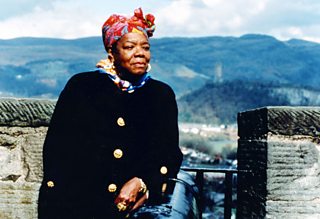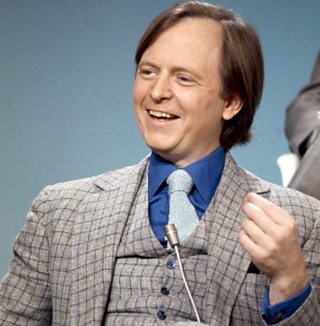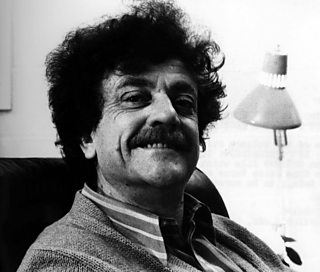Great writers on The Greatest
Trying to explain why so many writers loved Muhammad Ali as a subject, Janan Ganesh wrote: “It has become pat to say writers turn to Ali because his story offers the possibilities that only usually exist in fiction. If anything, that undersells him and overrates fiction.”
Again and again literary and journalistic heavyweights have been drawn to the Ali myth for inspiration. And his death has produced more remarkable writing about this remarkable man. Here's a selection of quotes from throughout the career of The Greatest…

Maya Angelou, Muhammad Ali: Through the Eyes of the World, 2002
Muhammad Ali was not just Muhammad Ali the greatest, the African-American pugilist; he belonged to everyone. That means that his impact recognises no continent, no language, no colour, no ocean. It belongs to us all, just as Muhammad Ali belongs to us all.

The world's greatest athlete is in danger of being our most beautiful man.Norman Mailer, The Fight, 1975
Norman Mailer, The Fight, 1975
The world's greatest athlete is in danger of being our most beautiful man. Women draw an audible breath. Men look down. They are reminded again of their lack of worth. If Ali never again opened his mouth to quiver the jellies of public opinion, he would still inspire love and hate.
James Baldwin, An Open Letter to My Sister, Angela Y. Davis, 1970
I jumped the track but that's of no more importance here, in itself, than the fact that some poor Spaniards become rich bull fighters, or that some poor Black boys become rich—boxers, for example. That's rarely, if ever, afforded the people more than a great emotional catharsis, though I don't mean to be condescending about that, either. But when Cassius Clay became Muhammad Ali and refused to put on that uniform (and sacrificed all that money!) a very different impact was made on the people and a very different kind of instruction had begun.
Hunter S. Thompson, Last Tango In Vegas: Fear And Loathing In The Near Room, 1978
I was still shaking hands with Bundini when I realised where I was - standing at the foot of a king-size bed where Ali was laid back with the covers pulled up to his waist and his wife, Veronica, sitting next to him… I felt like I’d been shot out of a cannon and straight into somebody else’s movie.
Tom Wolfe, The Marvellous Mouth, 1963
One minute Cassius would be out in the middle of the floor re-enacting his ‘High Noon’ encounter with Sonny Liston in a Las Vegas casino. He has a whole act about it, beginning with a pantomime of him shoving open the swinging doors and standing there bow-legged like a beer delivery man. Then he plays the part of the crowd falling back and whispering, “It’s Cassius Clay, Cassius Clay, Cassius Clay, Cassius Clay.”

LeRoi Jones, In the Ring, 1964
That leaves us with Cassius X. Back in the days when he was still Clay it was easy to see him as a toy manufactured by the Special Products Division of Madison Avenue. Now I think of him as merely a terribly stretched out young man with problems one hoped would have waited at least for him to reach a full manhood.
Joyce Carol Oates, The Cruelest Sport, 1992
Like a tragedy in which no one dies, the fight lacking a classic knockout seems unresolved, unfulfilled: the strength, courage, ingenuity, and desperation of neither boxer have been adequately measured. Catharsis is but partial, the Aristotelian principle of an action complete in itself has been thwarted. (Recall the fury of young Muhammad Ali at the too-readily-defeated Sonny Liston in their second, notorious title fight, of 1965: instead of going to a neutral corner, Ali stood over his fallen opponent with his fist cocked, screaming, “Get up and fight, sucker!”)
George Plimpton, Muhammad Ali: The Greatest, 1999
He was an engaging combination of sass and sweetness and naïveté. His girlfriend disclosed that the first time he was kissed, he fainted. Merriment always seemed to be bubbling just below the surface, even when the topics were sombre. When reporters asked about his affiliation with Islam, he joked that he was going to have four wives: one to shine his shoes, one to feed him grapes, one to rub oil on his muscles and one named Peaches. In his boyhood he was ever the prankster and the practical joker. His idea of fun was to frighten his parents–putting a sheet over his head and jumping out at them from a closet, or tying a string to a bedroom curtain and making it move after his parents had gone to bed.
Wole Soyinka, Muhammad Ali at the Ringside, 1985
Promoters, handlers It's time to throw in the towel--Parkinson's Polysyllables have failed to tease a rhyme From the once nimble Louisville lips. The camera flees, distressed. But not before The fire of battle flashes in those eyes Rekindled by the moment's urge to centre stage. He rules the night space even now, bestrides The treacherous domain with thighs of bronze, A dancing mural of delights. Oh Ali! Ale-e-e...
Kurt Vonnegut, Letter to Gail Godwin, 1967
And I’ve taken jobs a damned sight worse than writing for Hallmark. Most people have. But you really want to make it as big as Muhammad Ali, don’t you - to be that popular and wise in a magically simple way?

Even through the walls his was the most elemental voice I’d heard; it was huge, melodic and sounded somehow eternal.Davis Miller, The Tao of Muhammad Ali, 1996
Davis Miller. The Tao of Muhammad Ali, 1996
Even through the walls his was the most elemental voice I’d heard; it was huge, melodic and sounded somehow eternal. Listening to him made me so nervous that I shook a little and felt that I needed to pee. The old guy standing in front of me, strapping a pair of rich-smelling red leather gloves on my arms, looked at me and laughed. “He won’t hurt a little white boy like you,” he said.
Alex Haley, A Candid Conversation With The Flamboyantly Fast-Talking, Hard-Hitting Heavyweight Champ, 1964
It wasn't until 9:55 on a night last February that anyone began to take seriously the extravagant boasts of Cassius Marcellus Clay: That was the moment when the redoubtable Sonny Liston, sitting dazed and disbelieving on a stool in Miami Beach's Convention Hall, resignedly spat out his mouthpiece — and relinquished the world's heavyweight boxing championship to the brash young braggart whom he, along with the nation's sportswriters and nearly everyone else, had dismissed as a loud-mouthed pushover.
Gordon Parks, The Redemption of the Champion, 1966
Someone laughed but the champion seemed dead serious. And he just might do it I decided. For, at last, he seemed fully aware of the kind of behaviour that brings respect. Already a brilliant fighter, there was hope now that he might become a champion everyone could look up to.
Kenneth Tynan, Journals, 1971
On closed circuit TV at 5am K and I see the defeat of Muhammad Ali. Belated epitaph of the 60’s: flair, audacity, imagination, outrageous aplomb, cut down by stubborn, obdurate, ‘hard-hat’ persistence.
David Remnick, The Outsized Life of Muhammad Ali, 2016
Eventually, Ali became arguably the most famous person on the planet, known as a supreme athlete, an uncanny blend of power, improvisation, and velocity; a master of rhyming prediction and derision; an exemplar and symbol of racial pride; a fighter, a draft resister, an acolyte, a preacher, a separatist, an integrationist, a comedian, an actor, a dancer, a butterfly, a bee, a figure of immense courage.
The Greatest on the BBC
-
![]()
Explore the Muhammad Ali collection
Interviews, clips and documentaries gathered by BBC Radio in honour of the boxing legend.
-
![]()
"The greatest boxer of them all, actually was destroyed by his occupation"
Michael Parkinson on Muhammad Ali.
-
![]()
Letter from America
Muhammad Ali on the Dick Cavett show, September 1978.
-
![]()
The Frost Interview
Watch Sir David Frost's 1974 interview with the legendary boxing champion.




